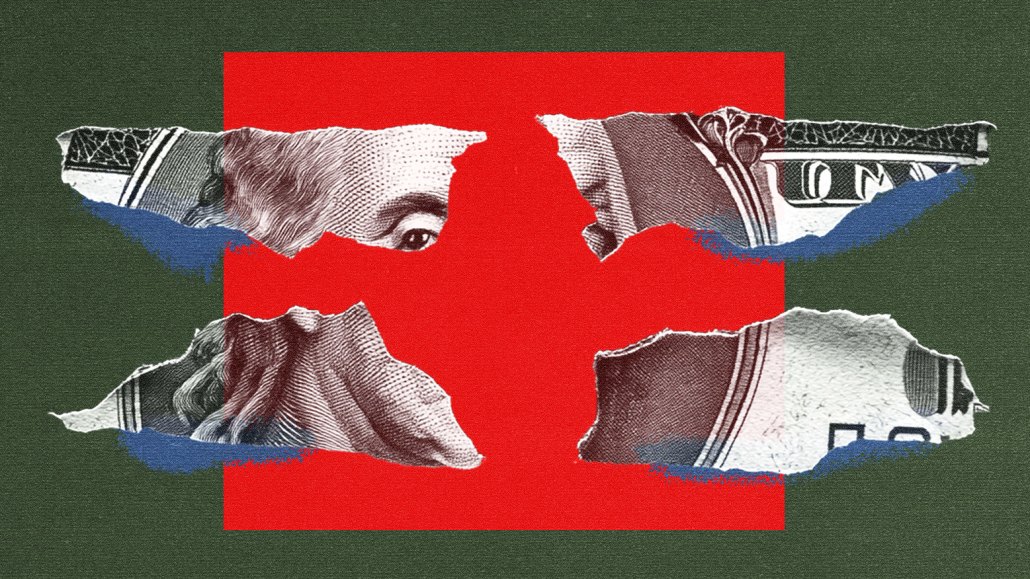By Sara Guaglione • December 17, 2024 •

Ivy Liu
AI search engine Perplexity introduced a new revenue share model back in July, amid the wave of deals between AI tech companies and publishers this year. But the way Perplexity is sharing ad revenue with publishers depends on a number of factors, according to information from Perplexity and conversations with five publishing execs, who declined to speak with attribution.
Here’s how Perplexity calculates revenue share for publishers: A publisher that is formally part of Perplexity’s program receives a certain percentage of the revenue Perplexity makes from an ad served in a response to a user’s query, when one of the publisher’s webpages is cited as a source for that response. (Perplexity has said 20 publishers have signed up).
But that range for each publisher varies, up to a double digit percentage, said Jessica Chan, head of publisher partnerships at Perplexity, who did not provide exact figures. That revenue increases for a publisher based on the number of links cited.
For example, if a publisher has two pages cited in response to a query, they would earn two-times the predetermined revenue share percentage, a Perplexity spokesperson said.
Perplexity sets a cap on how much money publishers can receive, which varies by query, according to the spokesperson. The percentage cap is standardized across all publishers and types of queries, and Perplexity cites four to eight sources for a given answer on average, they added.
The Wall Street Journal reported the revenue share was “up to 25%.” Two publishing executives — who traded anonymity for candor — confirmed to Digiday that that the revenue share was capped at 25%.
Two publishing executives told Digiday they had seen Perplexity offer a single percentage revenue share. Two other publishing execs said the deal Perplexity was offering was not exclusive, meaning they could sign content licensing and revenue share agreements with other AI tech companies.
Perplexity declined to share any specifics on the percentage revenue share or other financials the company was offering publishers.
Two of the five publishing execs further said they did not expect significant revenue from Perplexity’s program anytime soon, but that the monetization structure had the potential to be beneficial for their businesses — and that they would risk missing an opportunity to be paid for their content by not considering the offer, especially at a time when AI companies were ingesting online content for free anyway.
One of those publishing execs called the structure “uncommonly transparent.”
“Looking at our traffic from Perplexity, I’m not seeing enough of an opportunity that it will be a huge revenue driver yet. But as the publisher program grows and more users use Perplexity, I’m hoping that it will grow,” they said.
Another publishing exec said the structure of Perplexity’s revenue share program was “not uncommon.”
“I think this model is the most obvious one. It’s not overly complicated,” said another exec. They believed the revenue share program was structured in this way to help publishers feel more comfortable with “dipping [their] toe” into signing agreements with AI tech companies and incentivize them to try out a program like Perplexity’s.
Chan previously told Digiday that all the publishers that are part of the Perplexity’s program have the same revenue share, but three publishing executives weren’t so sure. One of those execs said they were in the process of negotiating better deal terms with the company.
Perplexity has signed revenue share deals with publishers like Time, Der Spiegel, Fortune, Entrepreneur, The Texas Tribune, Blavity, Gear Patrol, The Independent and Los Angeles Times, among others.
“Revenue share is one benefit of the publisher program, amongst others. While it is an important part, I would be remiss to call out that successful collaborations with publishers involve direct and indirect compensation from using our APIs, access to Perplexity Enterprise Pro for their organization and other types of longer term partnership benefits,” Chan said.
https://digiday.com/?p=563660














